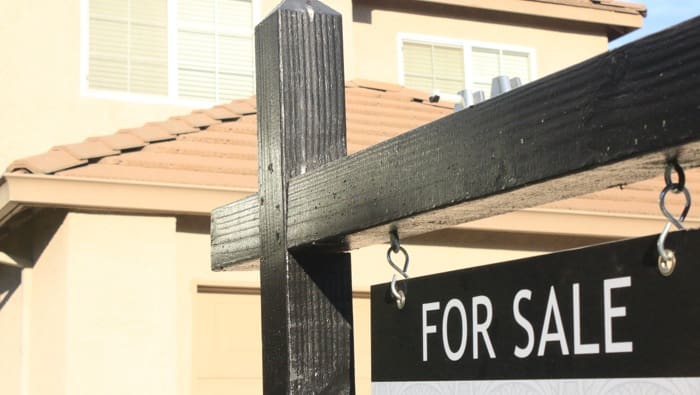Who Keeps the Earnest Money Deposit If a Home Sale Goes South?
- Published on
- 6-8 min read
-
 Lauren Vella Contributing AuthorClose
Lauren Vella Contributing AuthorClose Lauren Vella Contributing Author
Lauren Vella Contributing AuthorLauren is a writer based in Rhode Island. She attended Brown University, where she earned a B.A. in History with a concentration in East Asia. Her work can be found in Southern Rhode Island Newspapers, Brown University's Next Generation, and Awkward & Out.
Say you walk into a shop and fall in love with a $20 scarf, but don’t have enough money on you to buy it outright. You offer the cashier $5 to hold it behind the counter for the afternoon until you can return and purchase it in full.
You run home, grab your wallet and come back with the cash, scarf in hand.
But what if, in an alternate reality, you flake out on the store owner and decide to cut your $5 losses? In that case, the store owner keeps the money and the scarf.
The philosophy behind an earnest money deposit in a real estate transaction can be likened to this fictional boutique exchange.
Your buyers’ earnest money deposit is their good faith gesture that they are serious about buying your home after you’ve accepted their offer. Metaphorically and literally, the buyers have to “show you the money,” and often in the form of a sizable check. Assuming all goes as planned, that deposit will go toward their payment toward the home at closing.
Yet if for some reason they decide to bail on the contract or breach the agreement you’ve come to, the buyers now have collateral on the line that they stand to lose.
To better understand this small but critical step in the home sale inside and out, we asked a top real estate agent to walk us through every possible earnest money scenario, researched all the contingencies that protect buyers from losing their deposit, and played out the deal-crushing cases in which the cash would end up in the seller’s hands.
How much do buyers have to put down for the earnest money deposit?
The earnest money deposit is for “serious buyers only.” In most cases, buyers are putting forth a sizable sum of hard-earned cash when they hand over an earnest money deposit check—anywhere between 1-3% of the property’s purchase price depending on how competitive your local market is.
On a $500,000 house, a 1-3% earnest money deposit will be anywhere between $5,000 and $15,000. So, unless your buyers are high rollers putting down a frivolous amount of cash for their third summer cottage, odds are, they’re not keen on losing that much money.
The earnest money deposit amount is dependent on what you request of the buyers, as well as the buyers’ personal financial situation. Some earnest money deposits may be as small as $1,000 to $2,000—it’s all about what all the parties can agree to. But if they buyers are planning to put down 15%-20% at closing anyway, then the earnest money should be no problem.
How the earnest money deposit makes your purchase contract official
The earnest money deposit also “seals the deal,” and makes the sales contract between a buyer and a seller legitimate.
Linda Quinn, one of the top selling agents in the Portland, Oregon area says that the earnest money deposit is one of the four components that makes up a sales contract. Without the deposit, the legality of the contract is likely defunct.
“There are four necessity things to actually have a legal contract, and one is a start and stop date. And then parties to the transaction, and then the last thing is compensation. Without the deposit, it is unlikely that it would have the legal definition of a contract between a buyer and a seller.”
This legal contract will also map out the entirety of your sale from start to finish, such as the closing date and any contingencies written into the sale.
When you should expect the earnest money to come through
An earnest money deposit is, at its most simplistic definition, an upfront partial payment.
Like most commodity transactions, the earnest money deposit for a home is handed in almost immediately after an offer is made—usually within 48 hours of the acceptance of the offer in most markets.
Buyers who place a large deposit may also be asked to prove how they acquired their earnest money. Banks often seek proof that the buyers are using legitimate, legal funds such as money from income in a savings account. They’ll have provide evidence through documents like:
- Canceled checks
- Deposit slips
- Bank statements
- Other proof that you’ve held your earnest money cash amount in your account for 60 days or longer.
Once your earnest money deposit is successfully submitted, it’s held by a third party until every stipulation in the contract is complete.
There are a few impartial holders that could look after your deposit for the duration of the sale process like an attorney or a trust fund. But, according to Quinn, this can be cause for concern, especially if the trust fund or attorney is affiliated directly with the seller’s brokerage. Quinn says the safest place for you and your agent to put your earnest money is with an escrow company.
“In some states there are trust funds set up by the real estate companies, and they will hold the earnest money deposit for the buyer. But we don’t—at least in my brokerage—we do not have a trust fund. We feel that’s a liability, and it opens itself up to having maybe a brokerage determine where that goes if there’s a conflict. So, all of the earnest monies that we’re working with go to a neutral party which is escrow.”
If everything goes smoothly, and there are no breaches in contract by either party, the buyers earnest money will then count towards the down payment on the home at closing. Quinn also warns that a seller’s agent should never hold the earnest money deposit.
How standard contingencies protect buyers’ earnest money
So if the buyers put down the earnest money as a good faith gesture, that means that if the deal falls through, that money is yours (the seller’s) right?
Wrong.
It’s more complicated than that. 99% of the time, your buyers are going to pencil in a number of standard contingencies that protect them in case any surprises crop up between contract and close. Let’s walk through those.
A contingency clause denotes a condition (such as mandatory inspection or an appraisal) that must be carried out in order for a real estate contract to become binding. Common contingencies that are included in a sales contract are:
- The Appraisal Contingency:
The appraisal contingency says the buyer’s lender will perform an appraisal to assess the home’s fair market value. If the home appraisal comes in low, and the buyer and seller can’t come to an agreement to cover the difference, the buyer can walk way and keep their earnest money.
- Mortgage Contingency:
A mortgage contingency, or a “financing contingency” protects the buyer from a potential breach of contract if their loan falls through. Meaning, if they are unable to pay for the home through a mortgage, they are allowed to walk away from their purchase legally unscathed.
- Inspection Contingency:
The inspection contingency is yet another common clause used to protect the buyer. This contingency gives the buyer the ability to have the house inspected (within an allotted time limit) and back out of the contract if the home is not up to snuff.
- Home Sale Contingency:
A home sale contingency protects the buyer from paying two mortgages. This contingency allows the buyer to wait until after they sell their current home before closing on their new house.
“The interesting thing is the buyers really have a lot of the control,” says Quinn. “First there is the 5-day recisionary seller’s property disclosure. They can get out for any reason after the receipt of that paperwork. And then home inspection is another one. They actually have to do the home inspection, but they can decide that they don’t want the house for whatever reason even if they decide they don’t like it in that timeframe… And then all the way up to about a week or two before closing we have the financing contingency, and that means that if they don’t qualify, or if they lost their jobs they get their money back.”
Remember, everything in real estate is negotiable. If you’re in a hot seller’s market and have multiple offers in a home, you might be in a position to ask buyers to waive one or more contingencies to speed up the deal and protect your own interests.
When does the seller keep the earnest money?
If your buyers back out of the contract simply because they got cold feet, or decided on a whim to change their mind (and you’ve fulfilled all of their contingencies), that’s when they stand to lose their earnest money in the deal.
A lesser known contingency is the “time is of the essence” provision which sets consequences in the event that any party in the transaction fails to meet deadlines laid out in the contract. This can benefit you as the seller if you arrange for a closing date and stipulate that if the buyer fails to close on time, the contract is void and you get to keep the earnest money.
In any case, if the buyers fail to uphold their end of the bargain (like the boutique shopper who never returned with that extra $20 for the scarf) and the earnest money deposit is your consolation prize.
If you’re serious about selling your home, you’ll do everything you can to prevent this from happening. After all, it means putting your house back on the market and starting over.





